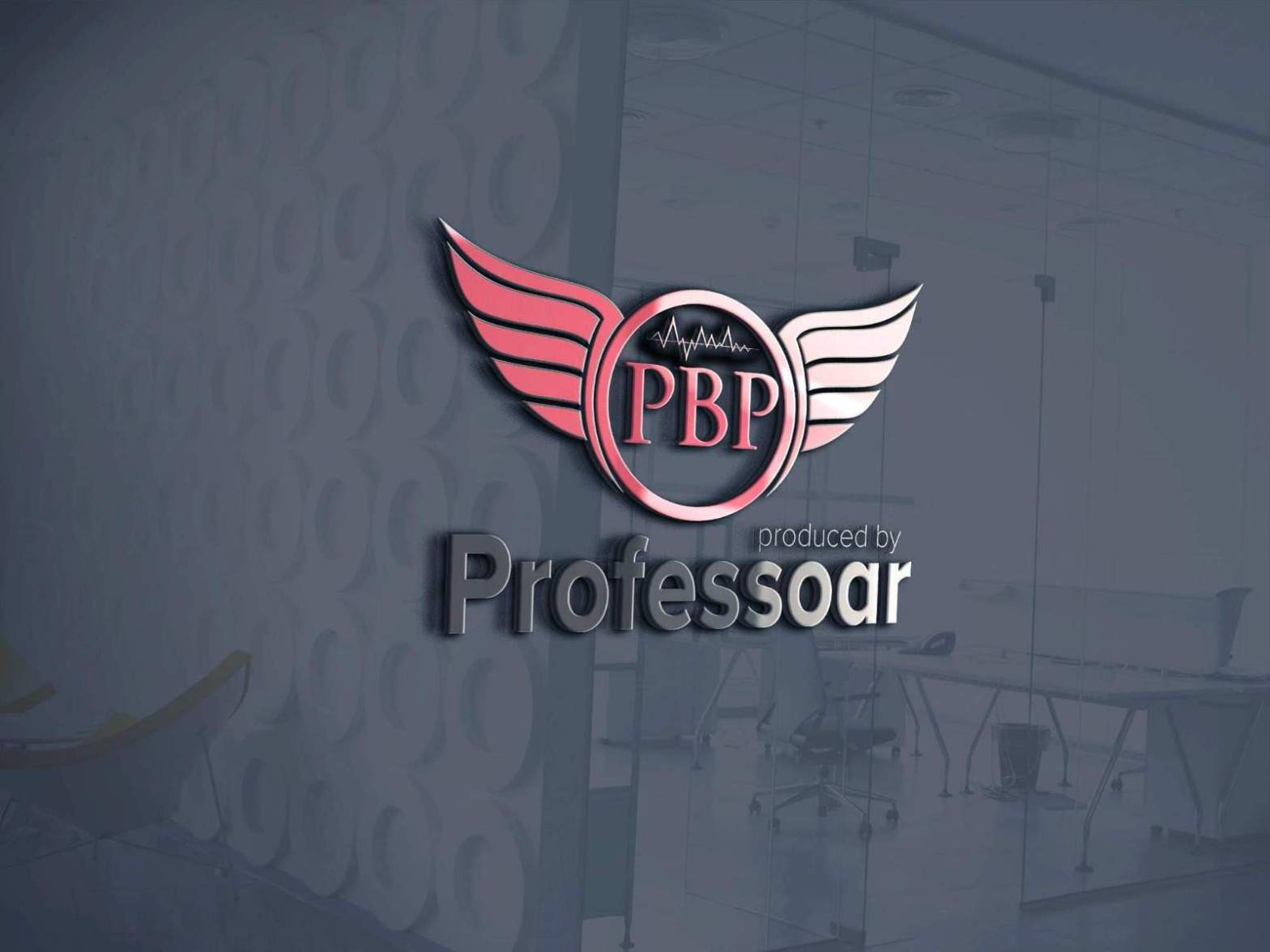
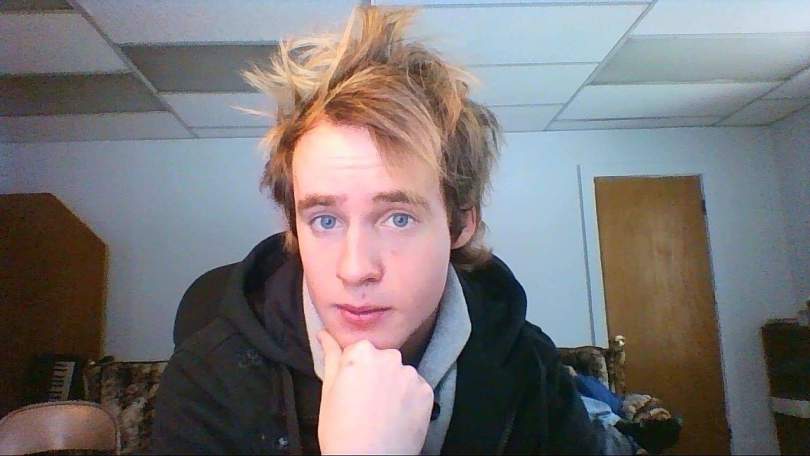
Today, I’m proud to introduce my first interview to Vinyl Writer Music, which I’m so grateful and honored to be a part of. For my first entry, I’ve got my first roommate and close personal friend of mine, who is also an emerging musical artist, vocalist, songwriter, beatmaker, and producer, Caleb Farah A.K.A (Professoar).
He provides an incredibly inspiring, up-and-coming story about his life, and how he got to where he is today. I’m glad to share this with everyone as my first submission to Vinyl Writer Music. I hope everyone enjoys reading this as much as I enjoyed working with Caleb throughout the process. Lastly, be sure to visit Caleb’s Instagram, Spotify, Soundcloud, YouTube, and Amazon channels via the links provided. Let’s do this.
Anthony:
Caleb, thank you so much for taking the time to talk with us. Let’s get right to it! Having known you personally for a while now, you seem to be a man of many hats and many talents, especially musically when it comes to composing and vocals. What are some of your earliest memories of music?
Caleb:
Hahaha, that is a great question, and a long story, but I’ll go ahead and tell it anyway. I have very, very early memories of music leaving an impact on me and impressions. When I was about 7 years old I saw a music video on MTV that left an impact on me. As a child and still, currently, I have extreme insomnia, so it was not uncommon for me to walk out to the living room or outside from time to time in the middle of the night. Now, I had heard of music before and even seen music videos, but at the time, (1997) as a 7-year-old, you didn’t really have access to the Internet or a computer. I grew up in an extremely small town in New Hampshire called New Hampton. In these circumstances, you don’t get exposed to a lot of different art, and you don’t get to explore it on your own; you are basically consuming whatever your parents put on the radio when they drive you around in the car. But that night, I saw the music video for the song ‘Just the Two of Us’ by Will Smith. On the TV, I saw a man speaking about trying to be a good father. I saw a man using things called “Rhymes” which I knew from my children’s books, but he was using them to a beat and a melody. This man was not only telling a story, but he was creating an emotional setting. The way he used his words had hypnotized me as a young child. I remember thinking, “This is a great man. One day I want to be a great man like him.” Of course, we all know Will Smith from The Fresh Prince and many other acting jobs, but this moment and song and video musically left a mark on who I would aim to be as I became older.
In middle school, my mother bought me a guitar but I hardly used it because of my A.D.D. However, I did love to listen to music like Green Day, Metallica, and Sum 41. This was mostly thanks to my Uncle Michael, who was into some music like this.
In High School, I met many friends. One of them was named Jared Hickman. I always thought and still do think he was very cool. He would teach himself so many artistic skills and create things on his own without formal training that you had to pay for. He unknowingly taught me that with the Internet available to us now, and with your own hands, you can learn and create anything you want to; there is nothing stopping you. He introduced me to excellent musical influences like MF Doom, System of a Down, Nightwish, Dragonforce, MC Chris, and a lot of other great genres and artists.
Anthony:
Where did your interest in composing music begin and when did you start making music and seeing success compositionally and vocally?
Caleb:
One day over the weekend, we were hanging at Jared’s place just the two of us. While we were waiting for one of our friends to come to scoop us up and hang, we thought, “Hey let’s make a rap song ironically.” I watched him take out his MacBook and open up GarageBand. Jared was able to make a beat in less than 2 hours, and I wrote down lyrics to this song. We even had a few friends come on board later. This song was called ‘Watchdawg’ and our name became the Funk Bastrdz. I was enamored with this ability to create art through this digital medium and attempted to learn more about producing audio while we made more songs. The Funk Bastrdz was never meant to be serious, it was just something ironic and funny that we did when we would hang out because it was fun. But it is amazing that it is kind of how I got started in making music because around that time, I got my first job at the age of 18 at GameStop as a Holiday Hire.
With my first paycheck that I ever earned, I bought a copy of FL Studio from Image-Line. GarageBand was not available for Windows back then, still not sure if it is. So I looked into alternatives and FL Studio seemed very appealing to me if a bit intimidating as well. This is probably because FL Studio was designed by Didier Dambrin or “Gol” and before beginning the project of Fruity Loops, which was just a 4 step sequencer back then, he was a programmer who developed some games. Maybe the translation of how a gamer might see something came out and presented itself in FL Studio’s design. FL Studio and Image-Line are extremely important to my success as a producer so far. FL Studio offers FREE LIFETIME UPDATES when you have a license. So that license that I bought for 200 or 300 dollars back in 2009 or whatever, is the same license I use today for this amazing award-winning software. FL Studio gets a lot of flack from some producers and I am not sure why. It is amazing and capable software. Artists like Porter Robinson, Drake, Avicii, Post Malone, and many others have had famous songs made in FL Studio!
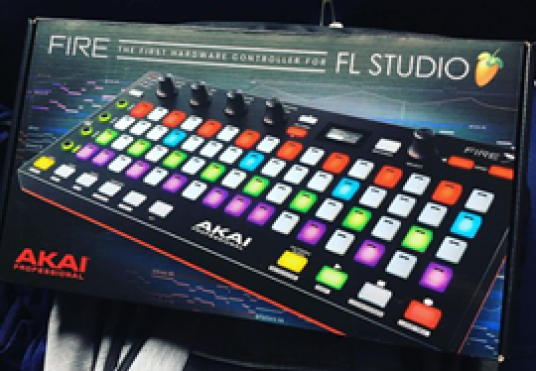
Anthony:
You mentioned that FL Studio is extremely important to your success. Can you tell us why FL Studio has meant so much to you?
Caleb:
FL Studio is so important to my success is because of the accessibility of the information on how to use and learn FL Studio. Back in 2012, there was a subjective big rise and the peak of EDM (Electronic Dance Music) with artists like Skrillex, Sweedish House Mafia, Knife Party/Pendulum, Sweedish House Mafia, Avicii, David Guetta, Calvan Harris and so many other incredible artists and labels that I could probably continue this for 5 minutes, but I will save you the history lesson unless you want one of course. But I digress. The reason why FL Studio is important is because of the rise of EDM. There was not much accessible knowledge online about music-making in DAW’s that didn’t exist on forums, and I found it very difficult to learn how to use a DAW without visual and audible information working in tandem. But luckily, due to FL Studio’s amazing price, there was actually a growing community of people pushing this software and its capabilities, as well as Image-Line’s dedication to constantly improving FL Studio (I love you Image-Line <3). So, some of these people began to share tutorial videos on YouTube, and this is where a person named Kev Willow also known as Kokiri Music comes into play. Kev Willow was making some amazing FL Studio tutorials and the format of the videos and the language that he used, as well as his process and his sound, were all excellent, especially for the time. This is when the dive into music really began for me. Electronic music was becoming big as well. I was going to raves, so it was all kind of a big exciting wave to ride.
Anthony:
Your YouTube channel, Professoar, has really become a great resource for others and even helped to elevate your music career. Can you tell us what led you to create your YouTube channel?
Caleb:
Things with my music didn’t really begin to pick up though until the year 2017, in the month of November. It was around this time that I was recovering from heavy alcohol addiction and being homeless. I needed something to do that I loved, and I needed a positive activity to channel and create within my life. So, I began to dive into music theory and actual practical beat making/full instrumental producing in early 2017 on a shitty $300 laptop that I bought off Amazon with my new job. (If there is one theme here to take away guys, it is to invest in yourself). I was actually acquiring a good bit of practical knowledge and reaching out to more experienced producers than me. One day my buddy Fernando and I went out to Guitar Center to buy a condenser microphone because he wanted to make a song, but we wanted a good microphone to record the vocals on. This song became ‘Be Your Knight’ and I consider it my first actual release. I am very fond of it because Fernando is a very close and amazing friend to me and always will be, so it is an honor to have that creation under our names. He really believed in me and the both of us. He had more money saved than I did, and I had more specialized knowledge built up, so he dropped about 3 or 4K on a computer and DAW and instruments and mic, which was pretty much a nice little home studio that we could use. It was really awesome because it was one of the first times I felt the motivation of someone financially investing themselves in something that I was responsible for creating. Little did I know that I would become addicted to this feeling and it would create a drive in me to create and work and share knowledge as I had never had before.
I bought an MPK Mini II at Guitar Center when we were over there. I would use it back at my apartment on my laptop. It was a real pain in the ass because there were no good tutorials on YouTube talking about how to use or set up this piece of hardware, so I had to look at the manual and read the shit and learn how to use it like I was back in school. I had been into putting up YouTube videos for a long time as well with a wide variety of content, music tutorials being one of them. So, after I learned how to use the MPK Mini, I made a video tutorial and uploaded it to YouTube. This video is the move that really got the name Professoar moving. Apparently, a lot of people had this piece of gear but couldn’t put it to practical use. But with the introduction of this video, my YouTube channel started pulling in more and more traffic. It is still my most viewed video at about 560,000 views at the time of writing. This video was really rudimentary though, but it was good enough for me to gain enough subscribers and even start making a little income off of my YouTube channel. Due to this reward of traffic and income and support, I continued to learn more and more about producing and music and audio, my video editing became better, my songwriting became stronger, my production process became more refined. I became addicted to the process of learning, creating, and sharing, this cycle is still deeply rooted in my love for what I do now.
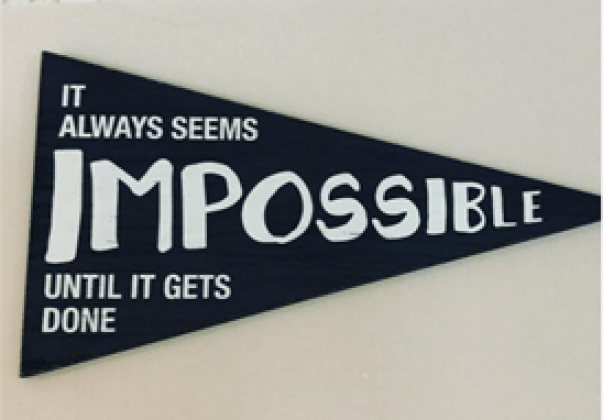
Anthony:
I know that you’ve really faced some personal demons that almost got in the way of your music. Can you share more about that, and how you found the strength to battle those demons and rise up?
For a long time, I had lived a very depressing life, seeking out death and challenging the fibers that held me together. I often fled into girls, alcohol, or drugs. Some of these were more beneficial than others, but they never cured the problem that I had with myself. I was trying to find value through girlfriends. I was trying to forget my hopelessness through alcohol. I was trying to push back against what I saw as a pointless journey through a one-way river full of torrents and sharp rocks, only reaching the end upon death to then find true meaning. It was a very dark mindset that I lived in since I became aware at around the age of 7 years old. It manifested much more ravenously in my teen and young adult years, though. Luckily, God had a plan for me. I think he really did have and still does have his hand on me, because he had a job he wanted me to do, and knew that I could do. Even when in my darkest times, I walked with the Lord, and I still do today: he is very much a part of why I love doing what I am doing now.
I had finally found something I loved to do: creating, teaching, and learning. Something clicked in the year 2017 that changed my mindset and shifted my paradigm. I wanted to create things that helped others. I wanted to learn more to help me. I wanted to help me to help others. I wanted to make music to help those who feel as hopeless as I used to. I had to become a better creator, a wiser person, a more humble servant, a more refined tool. I wanted and still want to make the most positive difference that I can in this time and space that we exist in before I take my last breath. I want the ripples of effects and energy and evidence of the work I will do for the Lord to ripple through time and space beyond my own personal observable universe. ‘Cause, what greater calling could there be than to magnify something greater than myself that loved me enough to create me? I had been saved from sin for a long time, but in 2017 I was able to finally save myself from myself as well. All of this history and love and drive and focus and desire goes into what I do every day when I study audio, create videos, practice recording, and compose. I do all this because it is what I love to do. I love it more than any woman, man, or material note of value. I had finally found love. I had been so afraid of love for so long because I was afraid of the pain it caused. This fear caused me to only focus on that pain. I would not dive into the waters of love because I didn’t know that deep down there is warmth and life, and immeasurable reward, and hope down in the depths of “love.” But it wasn’t “Love” as society taught me to think of it; it was a “Love” that had found me.
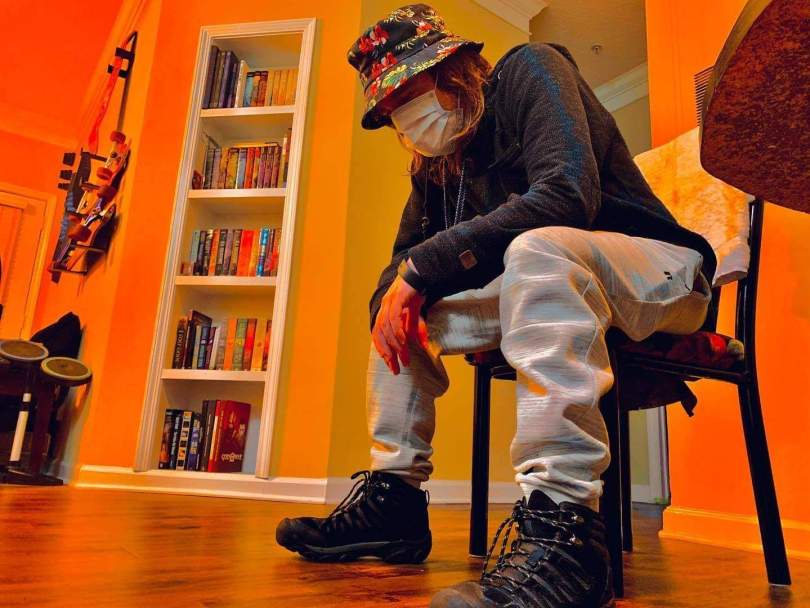
Anthony:
Your music seems to take a lot of inspiration from video game and anime soundtracks like your tracks ‘GlitchMobbers’ and ‘Lost My Pieces.’ Can you tell us a little more about what inspired these tracks and how they came to be?
Caleb:
YES!!!!! Some of my biggest inspirations and things that excited me to create have some roots within video games. I believe this is because of the inherent immersive storytelling nature that video games create. The first instrument I ever actually attempted to learn was the keyboard/piano, and the songs that I practiced were songs composed by Yoko Shimomura (下村 陽子), and Nobuo Uematsu (植松 伸夫) (both composers for SquareSoft games like Final Fantasy and Kingdom Hearts). These songs in these games resonated with me emotionally and made me question how to create or elicit “emotion” or “feeling,” especially after considering myself numb and dead for so long. Anime was a big influence as well. In fact, ‘Lost My Pieces’ is a song composed by Yukari Hashimoto(橋本 由香利) for the anime series ToraDora. This anime ToraDora is one that I watched in the year 2017, I believe. The theme of love in this show and its story touched me very deeply, and this song still elicits a deep response from my emotional well. To this day, some of my biggest compositional inspirations are anime and video game music composers. To name a few, Yuki Hayashi (林 ゆうき) and his works touch me very deeply; his use of motifs and drawing upon emotion created in earlier compositions and then building on the foundation is genius and awe-inspiring. Then there is Hiroyuki Sawano (澤野 弘之), who composed the OST for Attack on Titan and many other works. This man is especially incredible because he acted as sort of a mentor for a time for Yuki Hayashi. In fact, Yuki Hayashi is self-taught which is one more reason I am inspired by him. So yes, video games and anime have very deep roots in what I do.
You will also notice that I am a big fan of Porter Robinson, who himself is a professed “Japanophile.” You can see a heavy influence from video games and anime and even Japanese culture in his songs, and he is probably my favorite artist of all time. His Worlds album helped me through some dark times. His early works gave me so much joy at raves. His more emotional works and storytelling bring me to tears sometimes. Porter Robinson is a personal hero of mine, and I believe he is from North Carolina as well, and from a similar background. He has a lot of love for his fans and a lot of love for the art that he makes as well, going as far as to say things like, “The warmest place I’ve ever been is my home here in Chapel Hill. It’s an oasis of comfort and joy for me” and, “The thing that makes me want to proceed and finish a song is when it really touches me and makes me feel something.” I find these musings very relatable and they hit close to home.
There is one more game that will infinitely have an influence on what I believe, because of just how powerful the ability to elicit emotion through music in a video game can be. This game is UNDERTALE by Toby Fox, a tribute to his love for the game Earthbound that started as a small $500 Kickstarter project and blew up into a cultural phenomenon. I will not go much into this game because I want many people to be able to feel the powerful message of this story for the first time organically, as it is so strong. Toby Fox, the game’s designer, was also the game’s OST composer. Some of the theme songs that he created for that game are incredibly powerful and touch you very deep as they work with the narrative as if holding your hand for the emotional ride you are about to be taken on. To name a few tracks, ‘Hopes and Dreams,’ ‘Megalovania,’ and my personal favorite melody and motif of all time hands down the most emotional song for me, ‘His Theme.’ The meaning that this song carries in my heart creates within me a deep desire to find and magnify and offer hope to all who feel hopeless. The feeling of true empathy it reminds me of, and the knowledge of something more important than oneself is caries. The determination to push back against all darkness, despair, evil, death, corruption, and hopelessness. To push back those things with truly wholehearted and unquestioning love is beyond calculation. To end the cycle of destruction by facing it, standing your ground, and never failing to hope for something, and to hold on even in the face of the greatest of adversities. That is what this melody carries within me.
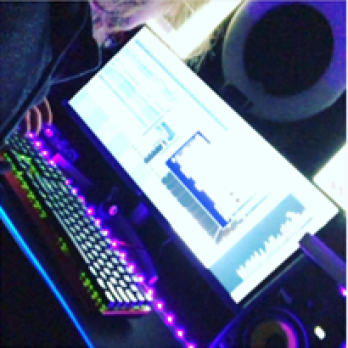
Anthony:
You’ve done some collaborations with other artists. How do you feel about working with other artists? Who have some of your favorite collabs been with, and what’s it like working with others as opposed to working on your own?
Caleb:
Working with other artists can vary greatly in the experience you have, usually based on two things: is there money involved, and are you guys friends or just working partners. These factors influence the amount of enjoyment or stress I can feel when collaborating with other artists, but the cool thing about working with other artists is that you always learn something. Whether it is directly or indirectly and whether it is a lot or a little, you will learn some new things, sometimes not even music-related. Sometimes you will just learn about what makes people, people. I enjoy collaborating with my close friends Chris Elliott and Fernando. Not only are these guys my best friends, but they have some great energy and ideas that can always transform my work process from “habitual” and convert it into something more exciting and new and different and creative.
The one problem about collaborations is that a lot of people want free work, or just don’t realize how much work goes into making a song. You will run into people in your life that kind of just want that energy and effort out of you for free because they think they have an idea, and they also think that the idea pays its own dues on time and effort. Unfortunately, this is not the case and can leave a creator feeling dry and drained. Don’t be that person who drains. Put energy back into the things you want to see grow. Put money into leverage. Put time and effort into making meaning. 🙂
Anthony:
You also create a lot of Hip-Hop and R&B. Can you tell us some of your inspirations and who you look up to as an artist?
Caleb:
Of course. Like I mentioned before, in the video-game/anime area, there are those artists. But if we were to speak in a more conventional sense and in that genre of music, I would have to say Kanye West, Post Malone, Future, Dr. Dre, Eminem, Oli Sykes, Jordan Fish, Coldplay, BigBang, G-Dragon, Ludacris, Kendrick Lamar, Will Smith, Aubrey Whitefield, and a lot of others. I like music in the genre very generally, so it is difficult to point at specific targets without rattling off a list of most artists that are just currently making music.
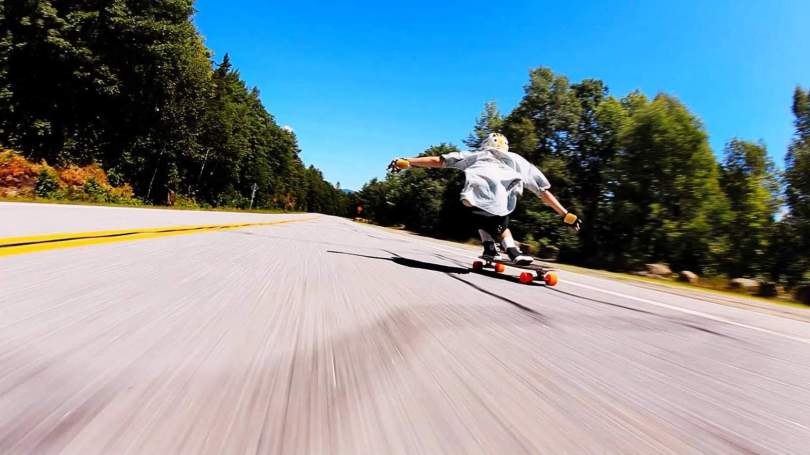
Anthony:
Creating all this great music and recording vocals doesn’t come without a bit of hardware and software involved, right? Can you tell us what equipment and software you’re working with when you record, mix, and master?
Caleb:
I have to agree with you here: having the right hardware and software can go a long way when it comes to making music and making your life easier. Luckily, you don’t need much, but having much can surely help. Hard work is the most essential thing. But as far as software, I like to use Image-Line’s FL Studio. It is probably the most important software personally in my toolkit. They are constantly engaged with the community and looking for ways to improve their programs for their consumers. Though I believe anyone can use any DAW to create good music, good art forms within the artist’s soul, not from the tools they wield. The tool is just a medium used to convey intent. I am also a very big fan of iZotope software. These Boston boys are killing it when it comes to creating Artificially Intelligent audio recognition, repair, restoring, creating, modifying…anything, you name it. Not only that but the tools themselves run smooth and look great, and they are working hard to create great engaging and educational content for their consumers. Native Instruments Kontakt is also an amazing tool for anyone to utilize. This audio sampler and the support and creative community built around this program are second to none.
As far as hardware and equipment goes, I have a desktop I run everything on, and then I have a closet that I turned into a recording booth and you can check out that out here. I also like to use an Aston Spirit Multi-Patter Condenser Microphone when recording vocals for music. You can check the mic out here. I’ve been using this mic for a long time and I think it sounds great! You can run it through a Scarlett Solo Focusrite interface, and get some really crisp and clean sound. Mounting the microphone on a suspended holder can reduce low-end vibrational resonance. I have a lot of tools at my disposal now that I have been collecting, but I definitely don’t encourage the mindset of spending a lot of money to be able to make good music. I don’t think you need anything amazing. I believe you can become a master with the tools anyone might have available to them right now. I actually mix and master from my work desk in my own bedroom. I did a collaboration with SoundAssured a bit back for a YouTube video and received a ton of sound foam, so I was able to treat a lot of space within my work area!
Anthony:
We’ve touched on video games a little bit earlier. Besides music, what other things do you enjoy doing in your free time?
Caleb:
It’s really funny that you ask me that question. I don’t really spend much time in an idle state. I am usually always trying to learn something new, study, create, teach or even meditate. I like to stay busy, so this lifestyle is very great for me. In the spare time that I do find here and there, I usually like to spend with a friend, talking with them or playing games with them, or just general chilling. Lately, I’ve been watching Haikyuu and Attack on Titan’s new episodes as they come out in my free time.
Also, I really like to watch YouTube in my free time. ProJared and the Game Grumps are some of my favorite people to watch play games. Kurzgesagt and Thoughty2 are some of my favorite fact channels as well. If any of you YouTubers are reading this, hit me up, I wanna chill and feature ahaha! Independent creator content really appeals to me over general mass-produced media like movies and television shows. I’ll also just listen to other artists’ music in my free time. I really love Oli Sykes and Bring Me The Horizon. I really enjoy things that Jonny Craig ends up being on. I also have a long-time love for Emarosa and Dance Gavin Dance.
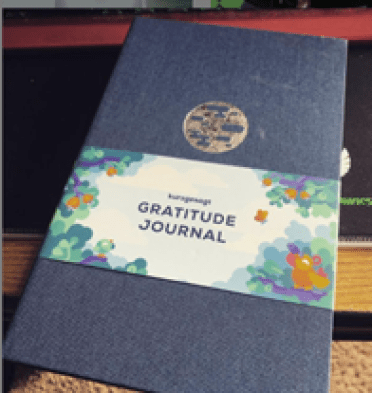
Anthony:
Music tends to bring out various emotions in the people who listen. When you’re writing music, do you try to pull certain emotions out of the listener with any certain tracks?
Caleb:
Absolutely I do, just as I mentioned above in a previous statement. I think that music can be an extremely effective medium and tool for eliciting emotion. Music alone is very powerful. One of my favorite classical compositions is “Clare De Lune” by Claud Debussy. It’s so beautiful, serene, and elegant. I could listen to it on repeat for hours. Music is also effective when used in pairing with other art forms, like movies and video games. I believe video game music and anime music, as well as any music that has ties with a strong emotional narrative, is something I enjoy and I inspire to create as well.
One of my newer releases, ‘Without You,’ sounds like a very angry song. I was extremely hurt and frustrated when I wrote it, but creating this song also helped me expose the hurt, scared monster within myself and see it for what it is. This way I could mend and repair myself in all that resulted from the problems. It’s a sad story about two bad people, and you can hear the anger in my voice when I am delivering my lines. I want people to be able to feel the emotion or relate to the feeling of what I created in the end. I also want it to help them. I believe that an angry song can help an angry individual who is struggling. When I was angry and suicidal and off the rails about an ex-girlfriend, I would listen to ‘Go To Hell For Heaven’s Sake’ by Bring Me The Horizon. This song is also very angry but it resonated with me in my darkest and most dangerous of times. It helped me feel a sense of understanding and pushed away from the loneliness.
The song ‘Ignite‘ is about discovering my overwhelming urge and desire to create something and wanting to inspire others to create as well. A lot of the music I make is influenced by the emotions I am feeling when I am making it. Sometimes this can make it difficult to focus on a long-term project because I have to remember the emotions and feelings of something for so long when naturally you would feel different in a new season of life. I also think music can be made to be easily digested. Take for instance royalty-free music or some cinema or television scores. Some music is meant to be thoughtlessly consumed, but I tend to resonate more with music that has meaning or reason or a story behind it.
Anthony:
Well, you probably saw this coming and you know I gotta bring it up. Has COVID-19 changed anything for you in terms of how you make music?
Caleb:
Surprisingly not really, hahaha. Before COVID-19, I spent most of my time inside my apartment working on learning new things and trying to create content. This didn’t change at all when COVID-19 hit. I actually had caught COVID at one point over this autumn, but I was asymptomatic to it. One thing that did change was the incoming traffic because people were stuck inside their houses. I think that some people were trying to learn a new skill, which is good. I noticed a lot more people checking out the YouTube tutorials on my channel when the pandemic was declared. I hope that more people try to better themselves during times like these, as I believe it’s a waste of potential to be idle and stagnant, and doing nothing other than wallowing and or thoughtlessly consuming while having the amazing potential that being a human entails. I know that all sounds very idealistic but I guess I just have a lot of hope and expectations for humanity and want to believe in the part that makes us grow and prosper.
Anthony:
You’ve made music for quite some time now. How do you see your future panning out? What do you hope to achieve in the near future with your music and the Professoar brand?
Caleb:
Well, I’m hoping that financially the Professoar brand can become sustainable enough for me to work on it full time. Right now, I also teach English to Chinese students overseas at about 38 classes a week, but if I could take all that time and put it into making music and videos as well as content, I think would be a very content man for the rest of my life. It’s not that I mind teaching either. I mean, the Professoar brand is all about teaching people how to make music anyway. But it would be cool to be able to fully focus that teaching and creative energy on something like music which I am very passionate about.
It would be awesome if the Professoar brand kept growing on YouTube and music streaming services, as I want to continue to make knowledge accessible and free to those who seek and desire it. I want all people to have the same advantages and opportunities. It’s unfortunate that the world is not this way, but I can still try to be a force that brings about a little bit of positive change. I want to continue making music. I want to go on tour and meet the people who connect with my music. I want to meet some of my inspirations. I want to leave an impression, and I want to help a lot of people. I want to inspire others just as people like Toby Fox and Porter Robinson have inspired me. If Professoar can achieve that, I think it would be awesome.
Anthony:
Can you tell us about any projects you have in store that you’d like to share with us?
Caleb:
Sure! I actually have like a billion projects in the works. It is not uncommon for me to be working on 3 videos as well as 3 songs all at the same time. It just depends on how I am feeling, and what I want to work on and also be creating at the time. So, there is always more video and music content on the way. I will be attempting to make 3 new songs over the course of 45 days, starting next week. I’m hoping to push my work habits and drive even further. So you can definitely expect some music. Also, ‘Without You’ is released on January 8th with a very heavy music video. I am looking forward to seeing how people react to the message and content of that video and song. It is a bit heavy and aggressive, so it should be interesting to monitor.
Anthony:
Last question. Is there anything else that you’d like to share with us? Where we can find your music as well as the other projects you’re working on?
Caleb:
I want to thank you so much for giving me the opportunity to share with you guys. When my friend reached out to me, I was honored, and even now I still feel very honored, so thank you so much! Thank you to all the readers as well, you guys are awesome! You can find my music and videos at the following places: I recommend YouTube if you want to get to know me better, and I recommend Spotify or Apple music if you want to hear my full works. If you want to hear more finished and unfinished things, then SoundCloud is the place to go. On Instagram, you can see what is generally on my mind. Again, thank you so much for giving me the opportunity to share with you guys today! I can’t wait to see this live and explore more content on your platform as well! 😀
INSTAGRAM : https://www.instagram.com/pr0fessoar
SPOTIFY : https://open.spotify.com/artist/7a2EoC0ZoybP3hadoAnkxu
SOUNDCLOUD : https://www.soundcloud.com/professoar
AMAZON : https://www.amazon.com/shop/professoar
YOUTUBE : https://www.youtube.com/professoar
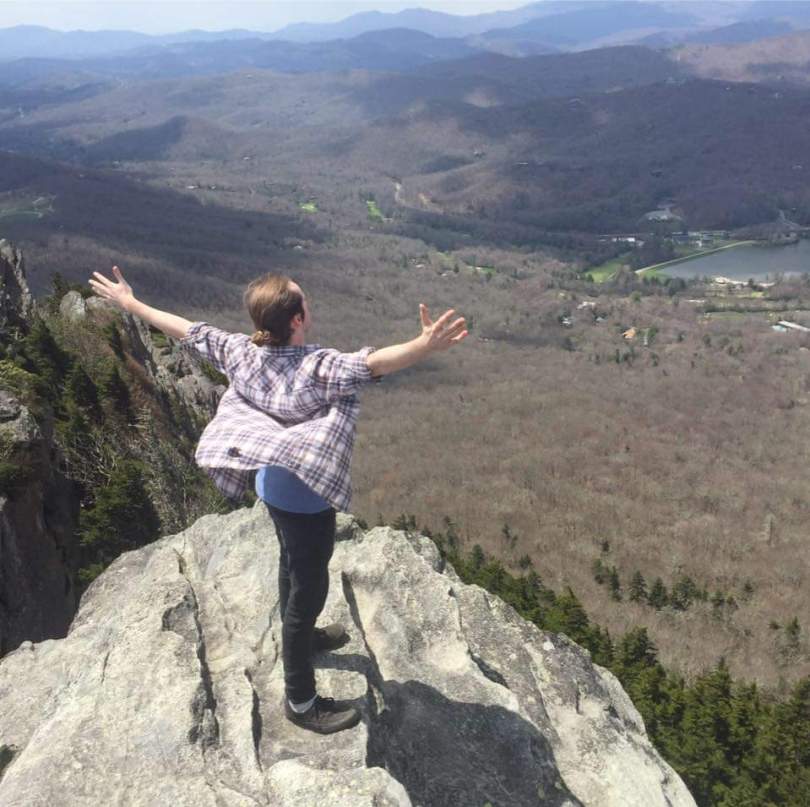
Dig this? Check out the full archives of A.M. Radio, by Anthony Montalbano, here: https://vwmusicrocks.com/a-m-radio-archives/
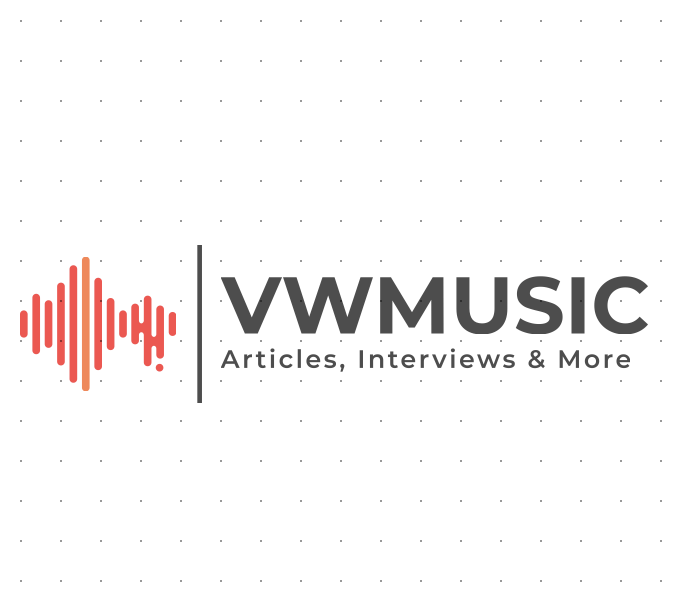
It was an honor to be a part of this, thank you so much! :’D
You’re very welcome! Your story is very inspiring. Thanks so much for sharing it with us! Wishing you lots of continued success and personal growth in 2021!